Weekly Brief #66
Musk and Altman, an OpenAI buyout... Plus, Shein IPO to be delayed, Karman Holdings holds its IPO, Nissan-Honda merger officially ends, Nippon Steel “revises” US Steel buyout, and more.
A huge welcome to the 13 investors who joined The J. Nicholas since last Weekly Brief! Haven’t subscribed yet? Join 796 intelligent investors by subscribing here.
Good morning investor 👋,
Welcome back to the 66th Weekly Brief.
This week’s performance:
S&P 500: +0.53% | Nasdaq: +1.17% | Dow Jones: -0.11% | TSX: +0.60% | Gold: +1.90% | Bitcoin: -0.82% | The Quality Fund: -1.02%.
Happy Valentine’s Day, investors! In celebration of this day, I’ve decided to offer a cool deal on the paid membership: 50% off for everyone, with a focus on gifting your partner or loved one a membership to The J. Nicholas, for all its benefits, at half the price. Spread the love... of stocks… this Valentine’s Day by clicking here. Today, we have beef to dissect with some of the most influential tech executives, two IPO updates and two M&As to cover (the most in any Weekly Brief).
Let’s get into it. (10 min read)
In this issue:
🧑💻 Musk and Altman, an OpenAI buyout
🚙 Nissan-Honda merger officially ends
🇺🇸 Trump announces 25% metal tariffs
FEATURED STORY
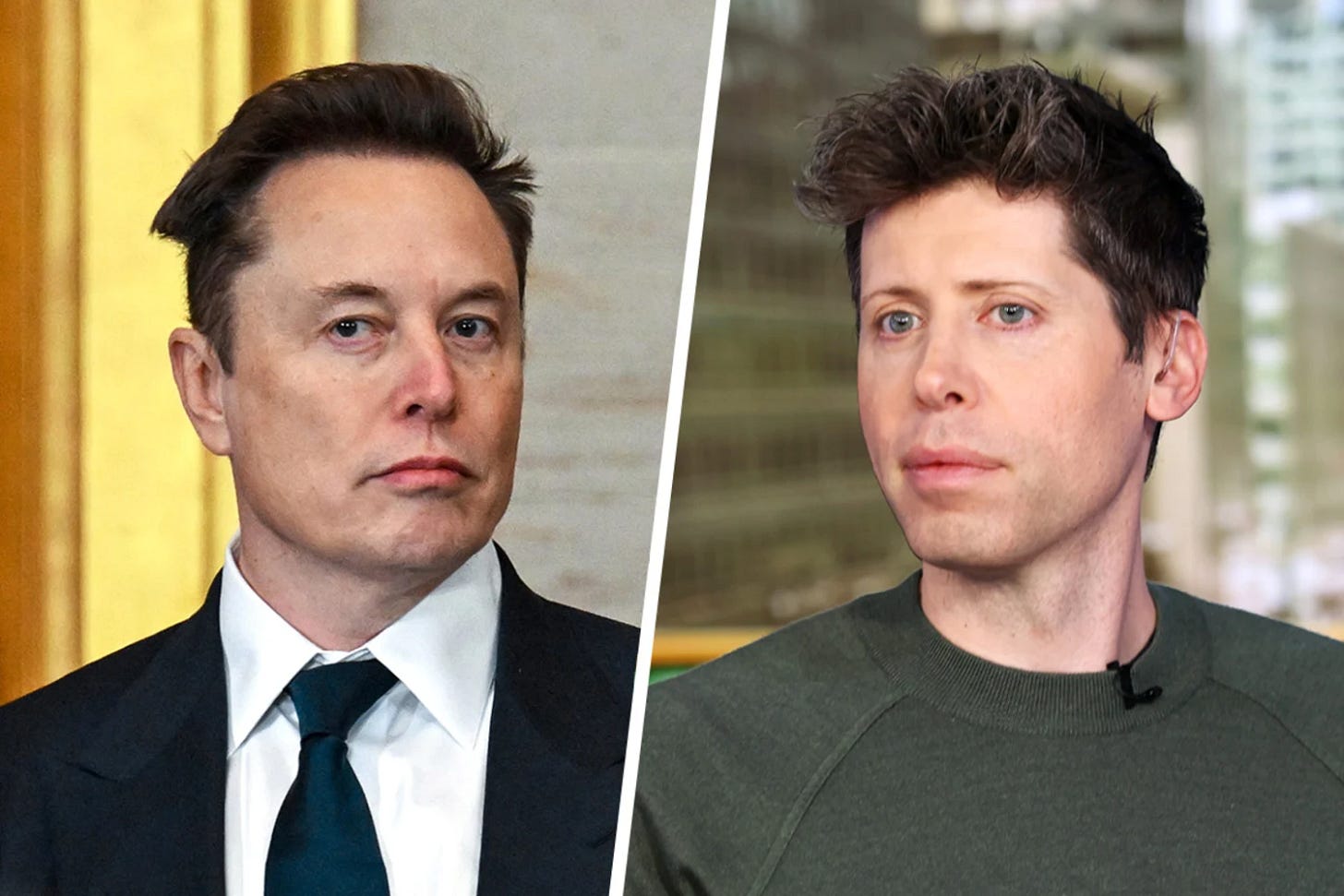
🧑💻 Musk and Altman, an OpenAI buyout
Elon Musk, the world’s richest man, launched a takeover bid this week to gain control of OpenAI’s non-profit arm by offering the board a cool $97.4 billion. But a beef evolved from this offer, and it’s time to talk about it.
So, what happened?
Well first, Sam Altman, the CEO of OpenAI, immediately declined the offer from Musk, and countered by offering to buy Twitter for $9.74 billion:
Musk then responded by calling Altman a swindler. And after doing so, began spamming the nickname “Scam Altman” across posts on Twitter. (It’s crazy we can see tech billionaires casually show this fued publicly in front of each other, online for free. What a world.)
The main issue with OpenAI that started the beef, indirectly due to the buyout offer, is that the company is trying to shift from a capped-profit structure to a full-blown “for-profit public-benefit corporation”—which is essentially a normal for-profit business but with distinct terms of service (that it technically doesn’t need to follow). Elon Musk—who co-founded OpenAI with Altman back in 2015 on the premise that it would remain a non-profit—has repeatedly opposed this idea, even going so far as to sue OpenAI for going back on its promise and for the $50 million he donated to its non-profit early on.
OpenAI then released a bombshell statement following the lawsuits, explaining how Musk had wanted to merge OpenAI with Tesla back in the day—which obviously didn’t happen—in an attempt to take control of the company. Fast forward to today, and Musk is trying again to gain control of OpenAI.
Now, you might be wondering why Musk offered $97 billion when, as I wrote a few weeks ago, SoftBank just invested in OpenAI, valuing it at $300 billion.
And you’d be right. The interesting part of Musk’s offer is that it’s only for the non-profit arm of OpenAI, which OpenAI itself says is valued at just $40 billion. Legally, you can’t just purchase a non-profit like you would another business, but you can buy its assets.
In this case, one of the assets of the non-profit arm of OpenAI is control over OpenAI’s for-profit entity. As of now, all this setup does is complicate things. This is why OpenAI is transitioning to a for-profit model (at least, in part). Doing so will simplify things, and according to the company, it is the only effective way to raise capital for the business. Once this happens, Altman—just him—could end up owning a stake in this new revised structure worth over $2 billion.
But if the board were to approve the acquisition of the non-profit by Musk, Musk would essentially take control of OpenAI because of the current structure. That would also mean Altman would no longer own that stake worth over $2 billion, and Musk would fulfill his dreams of beating Altman, or something.
Altman’s official response to this (aside from the tweet) in an interview with Tom McKenzie in Paris:
Interviewer: Do you take it seriously at all? What do you think he’s trying to drive out with this?
Sam Altman: I think he’s probably just trying to slow us down. He obviously is a competitor. You know, he’s working hard and he’s raised a lot of money for xAI, and they’re trying to compete with us from a technological perspective—getting the product into the market. I wish he would just compete by building a better product, but I think there’s been a lot of attacks—many lawsuits, all sorts of other crazy stuff, and now this. We’ll try to just put our head down and keep working.
Interviewer: Do you think Musk’s approach then is from a position of insecurity about xAI?
Sam Altman: Probably. His whole life is from a position of insecurity. I feel for the guy.
Interviewer: You feel for him?
Sam Altman: I do, actually. I don’t think he’s a happy person. I do feel for him.
Interviewer: Do you worry that he has proximity to the president and can influence decision-making, particularly around US policies on AI?
Sam Altman: Not particularly. Maybe I should, but not particularly. I mean, I try to just wake up and think about how we’re going to make our technology better.
Right now, OpenAI’s for-profit needs to compensate the non-profit for its ownership stake in the for-profit, so that the non-profit doesn’t abandon its mission to benefit humanity and sell itself out to shareholders. This doesn’t even include Microsoft’s 49% profit share entitlement of OpenAI’s future profits, which further complicates things. (Ergo, the structure is weird.) The likelihood that Elon actually buys OpenAI is very low—never going to happen, that kind of low. Low single digits in odds. As I write this, the offer is still on the table. Musk’s lawyers have said that he will withdraw the bid if OpenAI abandons its plans to transition to a for-profit structure.
FINANCE
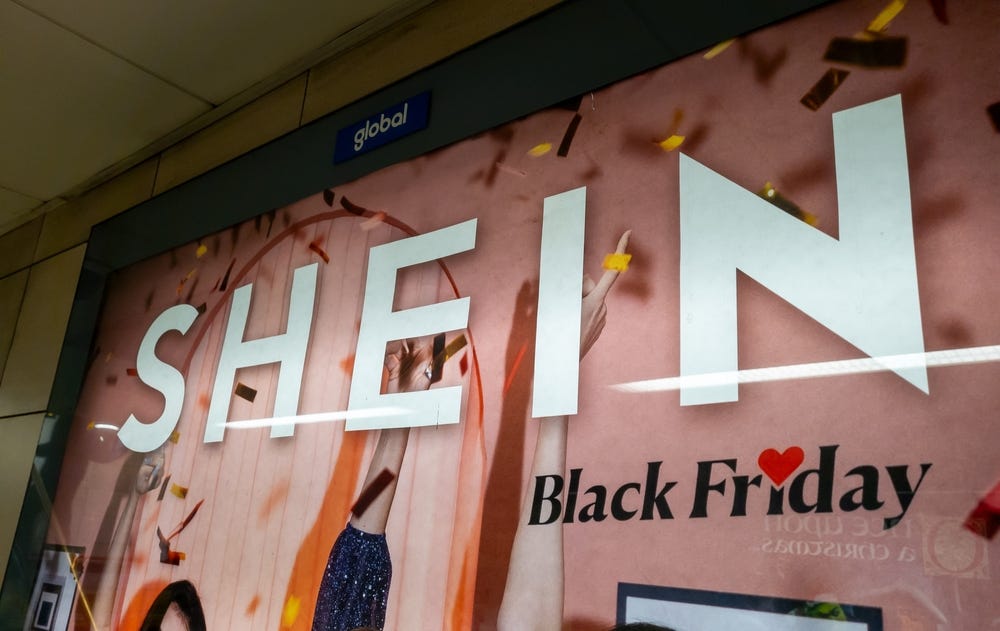
a. 👚 Shein IPO to be delayed
Shein, the Chinese fast-fashion giant, plans to list on the UK stock market but is likely to be delayed until the second half of this year due to Donald Trump’s move to close “de minimis” rules, which had helped keep Shein’s prices low. The company had previously expected a London listing as soon as Easter, with an anticipated valuation of around $50 billion or more.
Shein is said to be worth $66 billion as of the last private funding round and has annual revenue of approximately $30 billion. These numbers place it as the largest fast-fashion retailer in the world.
b. ✈️ Karman Holdings holds its IPO
Karman Holdings—a leading manufacturer in the space, missile, and defense industries—raised $506 million in an IPO this week, with its shares priced at $22 each. The stock then rose 36.59% on the first trading day to over $30, above the initial range of $18 to $20. Karman provides integrated solutions for the industries above, including payload protection and propulsion, and serves major customers like Northrop Grumman, Lockheed Martin, and Boeing.
Strategic acquisitions and partnerships, such as with AMRO and Trive Capital, have massively strengthened Karman’s position in the market. Its customer base has led to strong fundamentals, allowing the company to continue developing innovative technologies, which was reflected in investor confidence on the first trading day. I’m not familiar with aerospace, but from reading, Karman is a leader.
BUSINESS
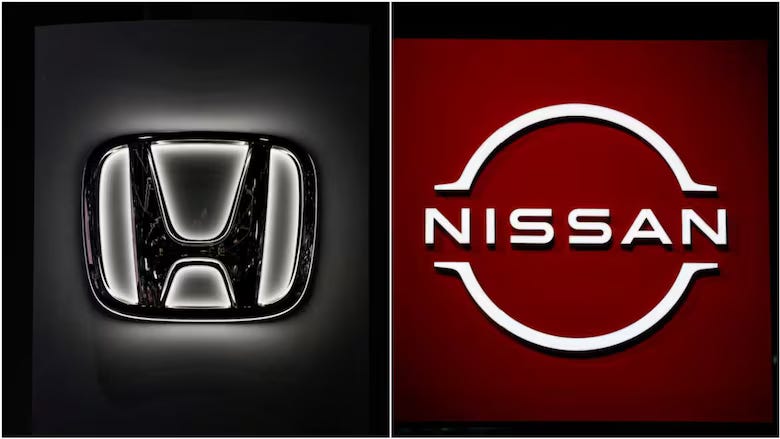
c. 🚙 Nissan-Honda merger officially ends
Honda and Nissan have officially confirmed that they have ended merger talks, a week after rumours circulated about the same announcement. The merger was supposed to be an attempt to compete with Chinese automakers in the electric vehicle market as the European market floods with cheap Chinese alternatives. (Mitsubishi Motors had also considered joining the merger.)
The talks fell apart after Honda proposed making Nissan a subsidiary, rather than creating a joint holding company as originally agreed. The companies both said that the decision to halt discussions was made to prioritize speed in decision-making, among other factors. Nonetheless, both will still be collaborating on electric vehicles and smart car technology in the future.
Related articles:
d. 🤝 Nippon Steel “revises” US Steel buyout
Nippon Steel Vice Chairperson Takahiro Mori travelled to the U.S. on Wednesday to prepare talks with the Trump administration about Nippon Steel’s proposed acquisition of U.S. Steel. Trump has alluded to the possibility that Nippon Steel may invest in U.S. Steel instead of acquiring it and plans to meet with Mori (alongside Nippon Steel CEO Eiji Hashimoto) soon.
Nippon Steel plans to offer U.S. Steel new technology for high-grade steel production and will repair its aging blast furnace equipment if the acquisition goes through. However, Trump has been persistent in saying that Nippon Steel will not hold a majority stake. Japanese Prime Minister Shigeru Ishiba seems to be mixed as I’ve read. He wants to weigh the importance of addressing these concerns by reviewing Nippon Steel’s plan. (I assume he will be reviewing that with Trump as well.)
Related articles:
POLITICS
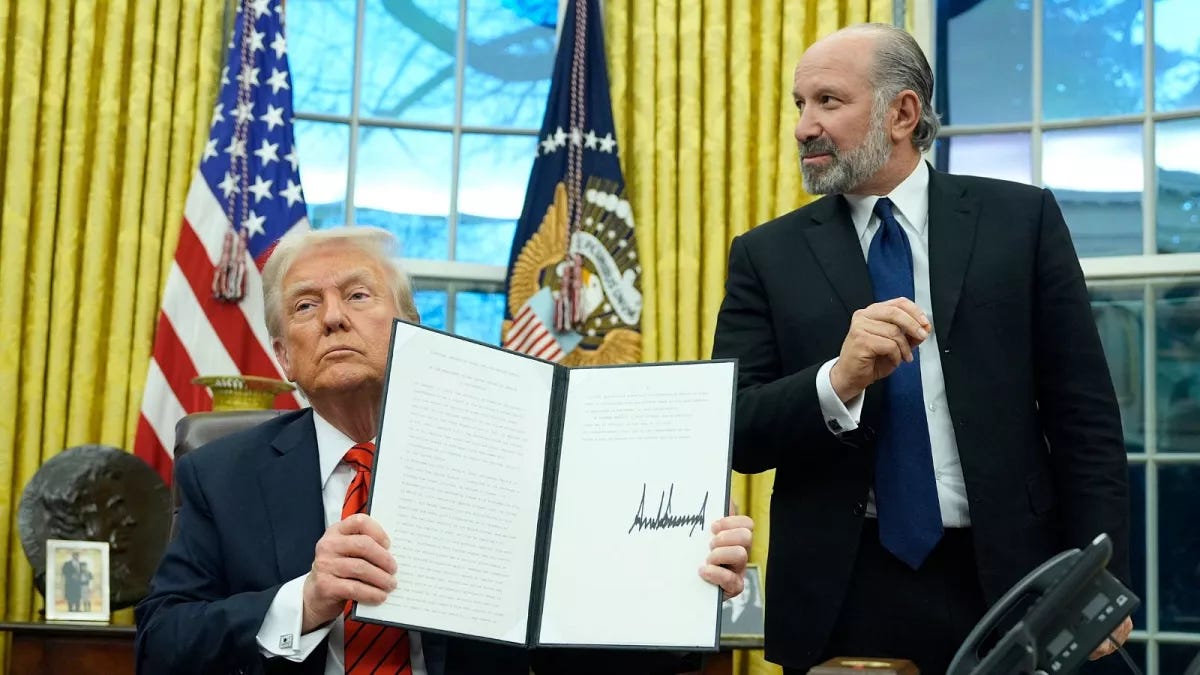
e. 🇺🇸 Trump announces 25% metal tariffs
Trump; politics; chaos: President Donald Trump announced a 25% steel and aluminium tariff on all imports coming into the United States this week. A large majority of both U.S. steel and aluminium imports come from Canada—America’s largest supplier. While this tariff will definitely affect Canada, considering how closely knit the Canadian and American metal industries are—hundreds of thousands of jobs in America linked to Canadian steel are at risk—this tariff is probably not going to be in place for long. (Most of Canada’s steel production is concentrated in Ontario.)
“Hundreds of thousands of jobs in the US are linked to the steel and aluminium input from Canada into the US economy. … I think there’s a lot at stake and nobody's winning with these tariffs, that’s for sure.” — Political adviser Catherine Loubier
Trump also plans to impose reciprocal tariffs on any country that taxes U.S. imports. This is mainly in response to China, but the pressure applies to any other country looking to retaliate. Trump has viewed tariffs as a way to protect U.S. jobs and grow the economy, but it is known that—at least in the short term—they only affect U.S. consumers with higher prices.
Related articles:
📚 Book of the Week
For every book purchased using the links below, 100% of affiliate commissions are donated to charity. (Amount donated so far: $36.42.)
My full bookshelf: Here.
The Uninhabitable Earth - David Wallace-Wells
Book Description:
It is worse, much worse, than you think. If your anxiety about global warming is dominated by fears of sea-level rise, you are barely scratching the surface of what terrors are possible—food shortages, refugee emergencies, climate wars and economic devastation.
An “epoch-defining book” (The Guardian) and “this generation’s Silent Spring” (The Washington Post), The Uninhabitable Earth is both a travelogue of the near future and a meditation on how that future will look to those living through it—the ways that warming promises to transform global politics, the meaning of technology and nature in the modern world, the sustainability of capitalism and the trajectory of human progress.
The Uninhabitable Earth is also an impassioned call to action. For just as the world was brought to the brink of catastrophe within the span of a lifetime, the responsibility to avoid it now belongs to a single generation—today’s.
Thanks for reading. Feel free to reply to this email or comment on the web if you need anything—I always reply. If you enjoyed today’s issue, feel free to share it with friends and family.
All the best,
Jacob
All of my links here.
Serious about high-quality stock investing? My best work is members-only. Don’t miss out on exclusive insights and benefits—upgrade today.


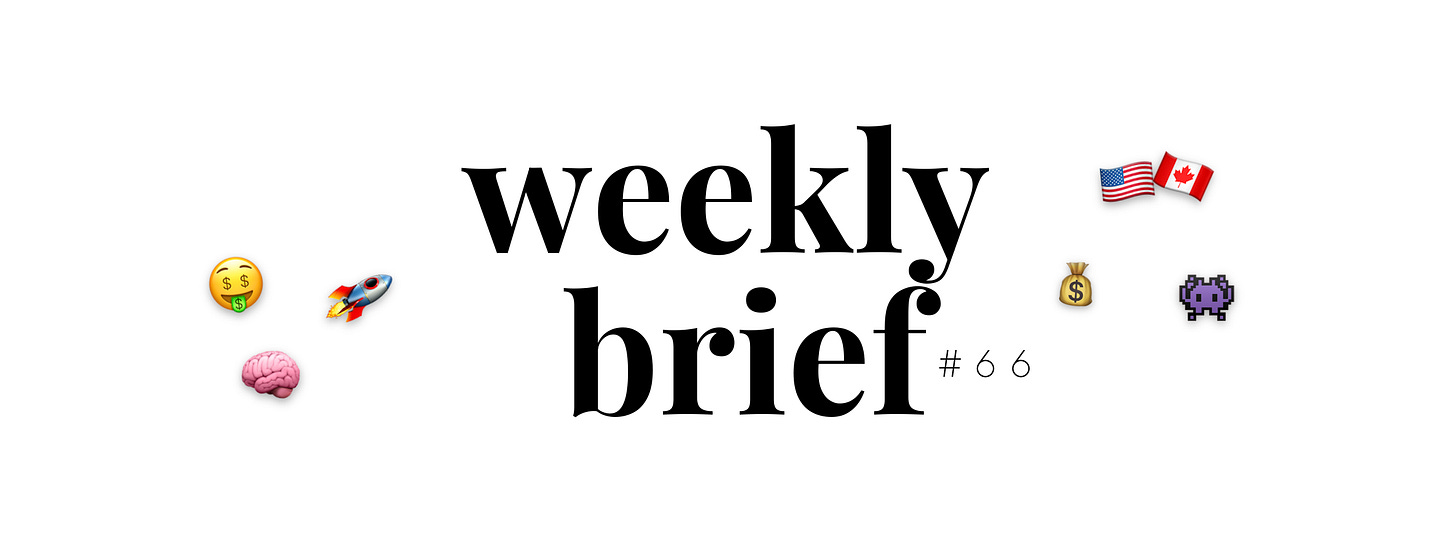
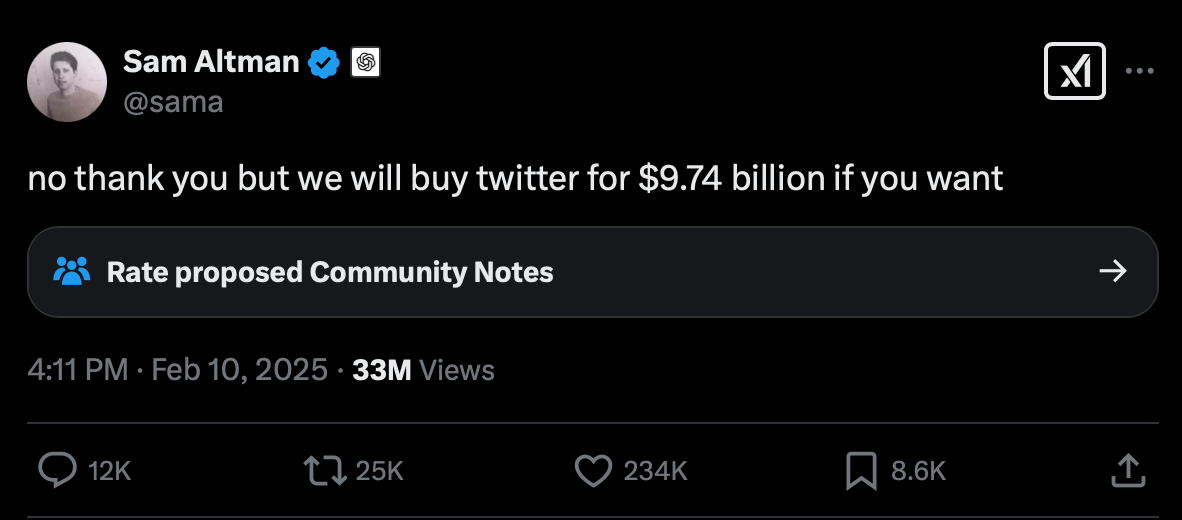
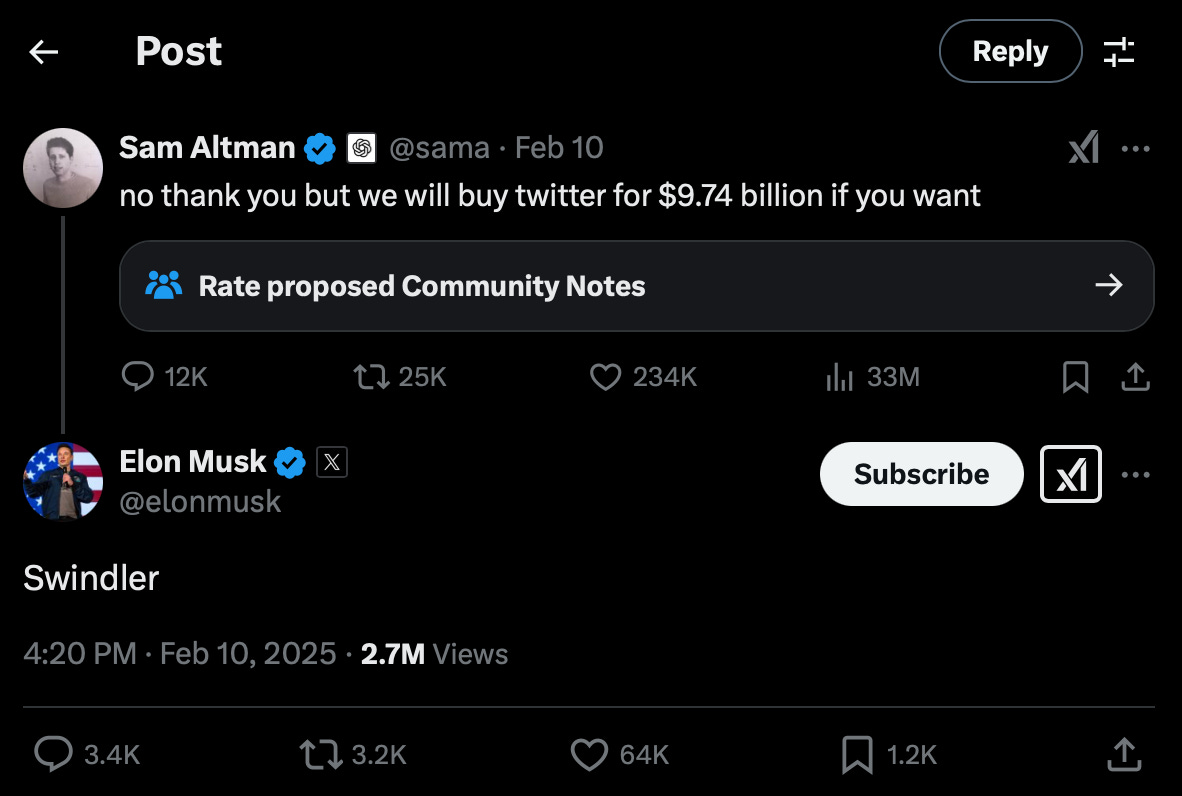
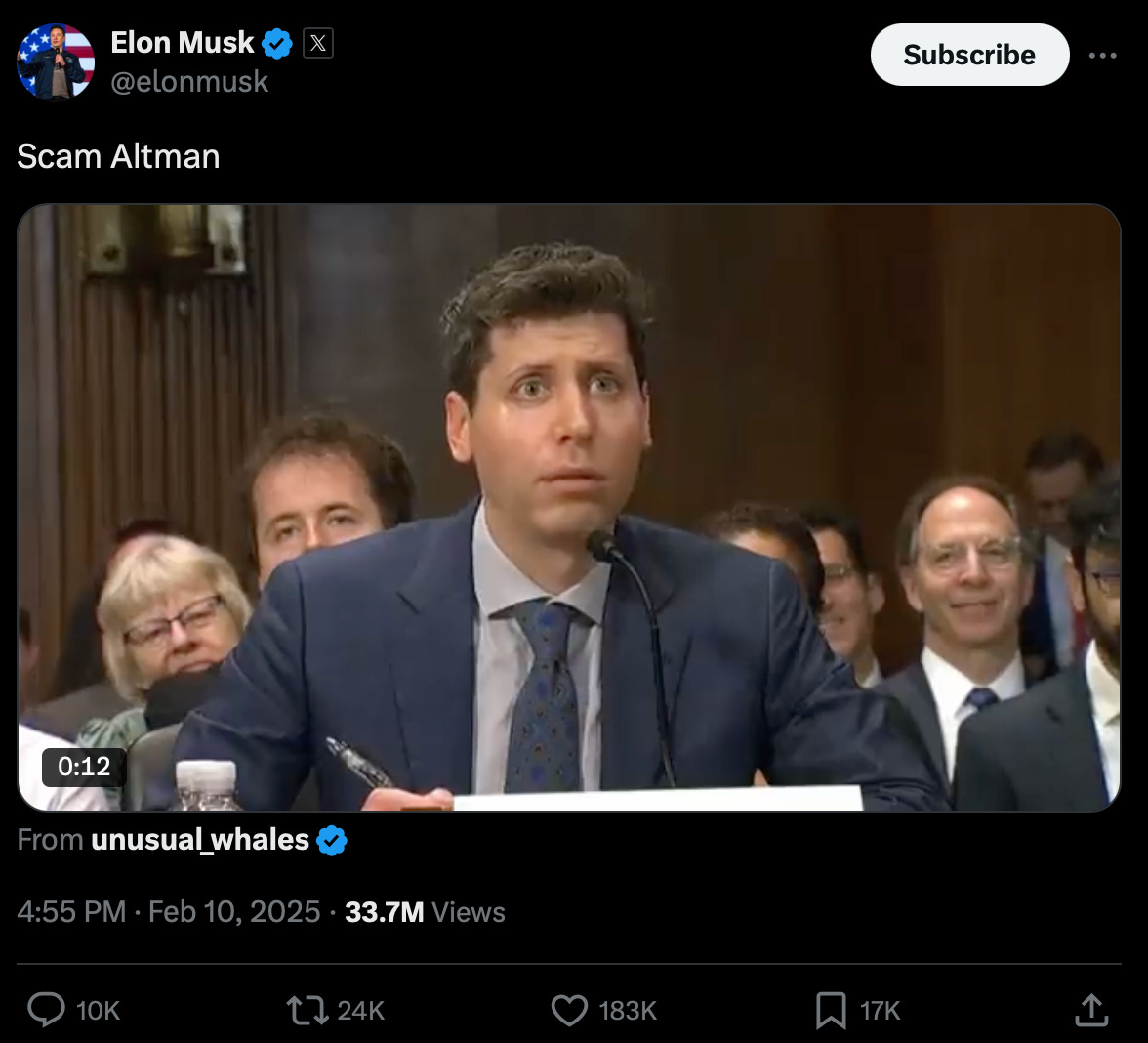
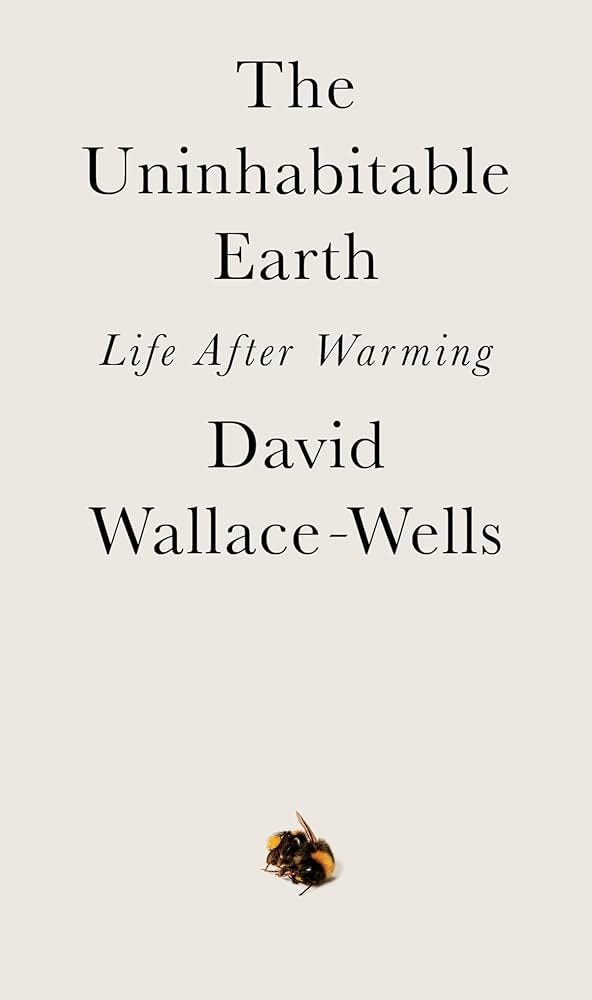
Those two psychopaths are entertaining when they don't have too much power in their hands. 🤨